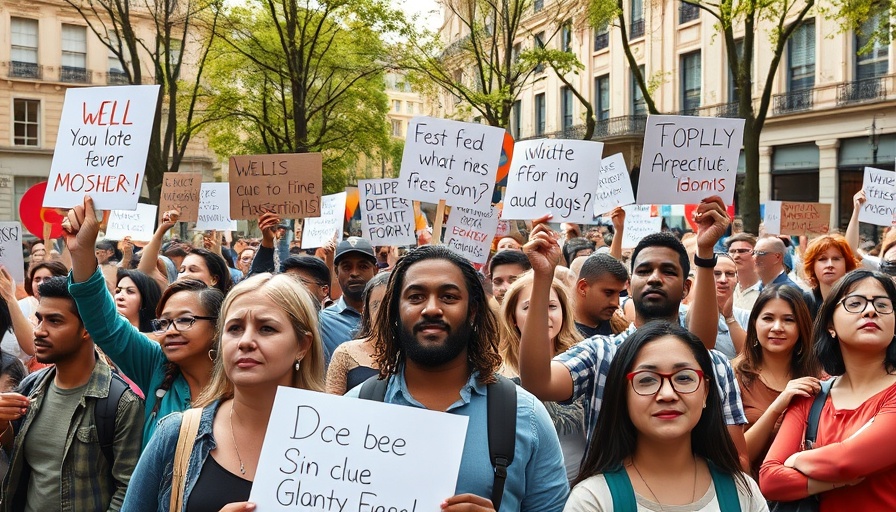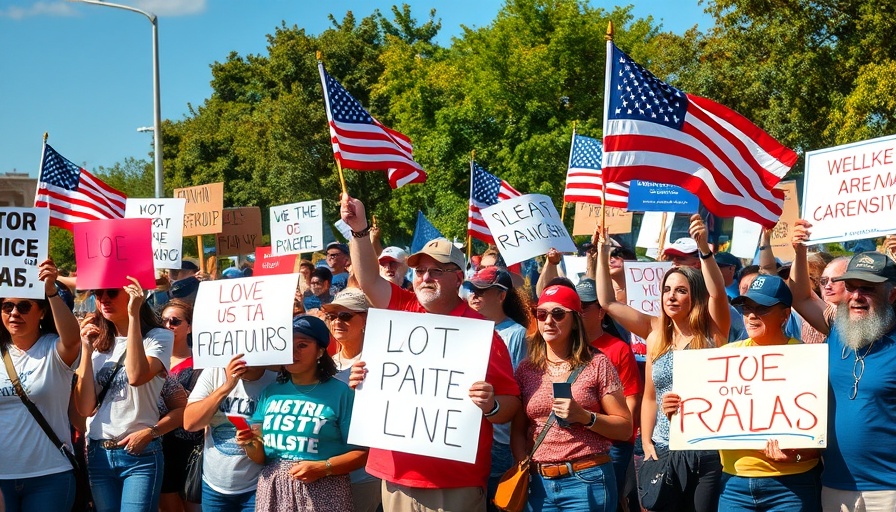
The Growing Tension: Local Voices on U.S. Military Action
In the heart of Tampa, voices rang out against the backdrop of international conflict this past Sunday. Protesters gathered to express their dissent regarding the recent missile strikes launched by the U.S. on Iran’s nuclear sites. This local response is a manifestation of a wider sentiment across various communities as tensions escalate globally.
A Community Mobilized: Who Stands Against War?
Approximately 100 individuals came together at a park before marching to the federal courthouse, united in their opposition to military actions that they believe could spiral into a larger conflict. Among those participating was David A. Gonzalez, a Brandon resident who felt compelled to take a stand, stating, "Definitely to show my disagreement with my country bombing another country on behalf of another country." His sentiment reflects an underlying concern echoed by many in the crowd.
Fearing the Consequences of Escalation
Organized by the Party for Socialism and Liberation, the protest was driven by concerns over the possibility of the U.S. becoming further embroiled in regional warfare. Alan Kim, a representative of the organizing group, highlighted the risks: "This has the potential to escalate into a regional war, potentially another forever war that the U.S. gets involved in depending on how the situation continues to escalate.” Such comments reveal a deeply rooted fear among activists that military actions could lead to long-term consequences and conflict, reminiscent of previous military engagements.
Protests as American Tradition: The Right to Voice Disagreement
For many participants, engaging in protests is not just about disagreeing with their government’s decisions; it’s about fulfilling their civic duty. Gonzalez emphasized the importance of petitioning the government: "If you have a disagreement with your government, you come out, you petition your government and you say your grievance." This reflects the fundamental American right to free speech and assembly, crucial in democratic societies.
Government's Stance: An Act Not of War?
In stark contrast to the protesters’ views, the Trump administration classified the missile strikes as "not an act of war." This official statement has not alleviated the concerns among critics, who see such military actions as serious escalations in U.S. foreign policy. The divide between government rhetoric and citizen sentiment illustrates an increasingly complex social landscape where trust in governmental decisions is questioned.
Looking Ahead: What Does This Mean for the Local Community?
The protest in Tampa may be just one of many happening across the nation as Americans grapple with foreign policy decisions that resonate deeply at home. The implications reach into local communities, as many residents begin to ponder the effects of distant conflicts on their lives. It raises questions about community values and the responsibilities of citizens to engage in the democratic process when they believe their government is acting against shared principles.
As tensions in Iran and other parts of the world continue to rise, it is essential for local voices to remain engaged. Those interested in advocating for peace and diplomacy must find avenues to express their concerns, ensuring their rights as citizens are upheld. Be it through protests, community discussions, or dialogue with representatives, the call to action is clear—staying informed and active is more critical than ever.
 Add Row
Add Row  Add
Add 


Write A Comment